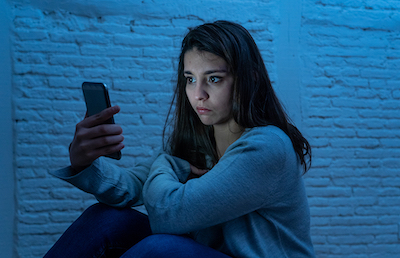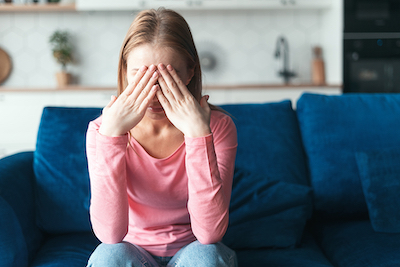Understanding a Silent Fear (And How to Break Free From It)
Ever get that awful feeling that the world just… doesn’t like you? You walk into a room and immediately your shoulders tighten, because it feels like every set of eyes is ready to judge, criticize, or dismiss you. You haven’t done anything wrong – in fact, you often go out of your way to be pleasant – but you still feel like you’re somehow rubbing people the wrong way.
If this thought plays on repeat in your head, you’re not alone. This sensation is more common than you think – but it can feel incredibly isolating.
Today, we’re going to dig deep:
- Why does this feeling happen?
- Why does it latch onto some people harder than others?
- How do you stop it from controlling your life and your relationships?
Let’s decode the psychology behind feeling disliked – and talk about how to finally move on from it.
Part 1: The Brain’s Worst-Case Scenario Machine
Your brain is always scanning for threats. It’s trying to keep you alive, even in situations where the danger is purely social. Throughout human evolution, being kicked out of the tribe meant death – literally. That ancient wiring is still here today.
So when someone doesn’t smile back…
When a coworker seems short with you…
When your message gets left on “read”…
Your brain jumps to:
“They hate me. I’m not wanted.”
It’s trying to predict danger. But instead, it ends up predicting rejection.
This is called negativity bias – and it’s powerful. One tiny hint of disapproval can outweigh ten signs that people actually like you.
The worst part?
We’re often not reacting to real hostility – just the fear of potential hostility.
Part 2: The “Everyone Hates Me” Loop
Once you feel disliked, it starts a chain reaction:
1️⃣ You assume others are judging you
2️⃣ That assumption changes your body language
- Less eye contact
- Tense posture
- Nervous tone
3️⃣ People misread your discomfort
They might think you’re cold, uninterested, or unfriendly.
4️⃣ They keep their distance
Which reinforces your belief that yes – they really do hate you.
This is known as a self-fulfilling prophecy.
We fear disconnection → We act differently → We create the very disconnection we feared.
Part 3: Who Feels This the Most?
Not everyone gets trapped in this fear. It tends to hit certain personality types harder:
1️⃣ Highly Self-Aware / Overthinkers
These people notice everything – a yawn, a smirk, a delayed reply. And they analyze it endlessly.
Awareness = superpower.
Overanalysis = kryptonite.
2️⃣ People Pleasers
When your identity depends on being liked, any sign of disapproval feels catastrophic.
3️⃣ Introverts & Socially Anxious People
They often expect rejection before connection.
4️⃣ Highly Sensitive Individuals
Tone of voice. Facial expressions. Body language. They feel it all, deeply.
5️⃣ People With Low Self-Esteem
If you already don’t like yourself, it feels natural to assume others don’t either.
None of these traits mean there’s something wrong with you. They mean you care – maybe too much – about social acceptance.
Part 4: The Distorted Glass Problem
How we see the world is filtered through how we see ourselves.
Imagine wearing glasses with a slight crack right over your view of your own reflection. Every time you look at yourself, that crack makes you think something’s wrong.
Now picture those glasses on your eyes all day.
You’re not seeing other people clearly –
You’re seeing them through the distorted belief:
“There must be something about me that people don’t like.”
Psychologists call this:
- Mind reading (“I know they think poorly of me.”)
- Personalization (“Their bad mood must be because of me.”)
- Catastrophizing (“This awkward moment means they’ll avoid me forever.”)
These cognitive distortions feel like facts.
They’re not.
They’re filters.
Part 5: Why It’s Not About You (Even When It Feels Like It Is)
Most people aren’t thinking about you anywhere near as much as you think they are. They’re wrapped up in their own insecurities:
- Someone seems irritated? They might be stressed.
- Someone doesn’t wave? Maybe they didn’t see you.
- Someone looks at you funny? Their thoughts might be miles away from you.
We tend to assume intent where there is only randomness.
There’s a term for this:
The Spotlight Effect
We believe we’re centerstage and everyone is watching. In reality, everyone else is too busy worrying about theirspotlight.
Part 6: Real Social Friction – When There Is a Cause
Sometimes, the feeling doesn’t come from anxiety – sometimes there is friction.
People might react negatively if:
- You give off tense or defensive vibes
- You’re guarded and hard to read
- You unintentionally appear unfriendly
- Your humor or style isn’t understood
- You’re shy (misread as “arrogant” or “uninterested”)
It’s unfair, but perception shapes relationships.
The goal isn’t to change who you are – but to make sure how you feel inside actually matches what others see on the outside.
Part 7: Practical Strategies to Break the Cycle
Alright – deep psychology is great. But how do you fix this?
Let’s break it down into real, doable steps:
✅1️⃣ Assume Neutrality, Not Hostility
When unsure what someone thinks of you, replace:
- “They dislike me”
with - “I don’t know yet – and that’s okay.”
Neutrality gives you space to breathe.
✅2️⃣ Look for Evidence
Ask yourself:
“What’s the proof they hate me?”
Your brain might give you:
- A vibe
- A hunch
- A single awkward moment
None of that is proof.
✅3️⃣ Improve Non-Verbal Warmth
Small habits change first impressions:
- Uncrossed arms
- Soft facial expression
- Nod while listening
- Light eye contact
- A simple smile
Warmth invites warmth.
✅4️⃣ Shift Focus Outward
Instead of fearing judgment, get curious.
Ask questions. Listen deeply. Notice what others need socially – not what you fear.
People love those who make them feel seen.
✅5️⃣ Remember: Likability Isn’t a Test
Not everyone will like you. Not everyone has to.
Even the most charismatic, beloved humans have critics.
If everyone approved of you, you’d be a watered-down version of yourself.
✅6️⃣ Upgrade Your Self-Talk
Treat yourself the way you would treat a friend who’s struggling.
Would you tell them:
“Yeah, everyone hates you, obviously.”
Of course not.
Be your own ally – not your bully.
Part 8: The Comforting Truth
Most people aren’t against you.
Most people aren’t judging you.
Most people are just trying to get through their day…
…hoping someone likes them too.
That person who seemed annoyed?
Might be dealing with their own demons.
That group that didn’t invite you?
Maybe they assumed you weren’t interested.
That stranger who didn’t smile back?
Maybe they’re having the worst week of their life.
We never know what someone else is battling behind the scenes.
Give them – and yourself – grace.
Part 9: How You Start Changing the Story
You don’t have to wake up tomorrow and become the most magnetic person in every room. You just need one small shift:
Trade self-protection…
…for connection.
It might feel risky. Vulnerable. Scary.
But that is where friendships start.
That is where confidence grows.
That is where life becomes beautifully human.
Your job is not to be perfectly liked.
Your job is to show up as a person worthy of liking – because you already are.
Final Thoughts
The belief that “everyone hates me” is one of the most painful lies the brain can tell. It keeps you small, guarded, and distant from the connections your heart is craving.
You don’t have to live inside that fear anymore.
Yes – you’ll still have awkward moments.
Yes – some people won’t click with you.
Yes – temporary judgment happens.
But overwhelmingly?
People want to like you.
People want you around.
People want to know you.
You don’t need to win anyone over.
You just need to stop assuming you’ve already lost.












